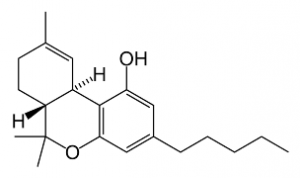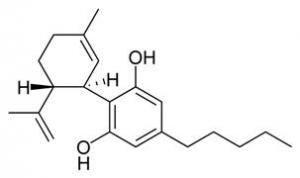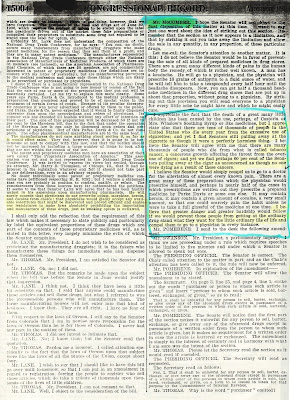by Phillip Smith, September 01, 2010, 12:49pm, (Issue #647)
http://stopthedrugwar.org/chronicle/2010/sep/01/germany_approve_sativex_not_medi
German press reports a couple of weeks ago carried headlines saying "Lawmakers Ready to Approve Medical Marijuana" and "Germany Plans to Legalize Medical Marijuana." Those reports were incorrect, and so was the Drug War Chronicle story based on them, "Germany Legalizing Medical Marijuana." (The title to that story, which we have since updated, now reads "Reports of Germany Legalizing Medical Marijuana Are Premature.")

According to the International Association for Cannabis as Medicine, whose executive director, Dr. Franco Grotenherman, also heads the German Association for Cannabis as Medicine, what actually happened is that the German government has modified its drug laws to reclassify marijuana from Annex I (no medical use) to Annex II, as long as it is "intended for the productions of preparations for medicinal purposes" -- not raw marijuana.
The health ministry also approved adding "cannabis extract (extract obtained from plants and parts of plants belonging to the species cannabis) in preparations approved as medicines" to Annex III of the drug law. That means that Sativex, a sublingual marijuana extract composed primarily of the compounds Tetrahydrocannabinol (THC) and Cannabidiol, will qualify as medicine under German law, and that its maker, Britain-based GW Pharma, can now apply to market it there.
GW Pharma is partnering with the pharmaceutical giant Bayer in marketing Sativex. Approval to use Sativex in Germany is expected to happen next year. It will only be approved for the treatment of spasticity in multiple sclerosis.
GW Pharma's move in Germany is part of a broader roll-out of Sativex, which has already been approved for limited use in Britain, won preliminary approval in Spain, and this week, was approved for MS spasticity in Canada. The company also plans to seek approvals in other European Union countries, including France and Italy.
"There are media reports that the German government is intending to ease the access to cannabis for medicinal purposes," said Dr. Grotenhermen in response to a Chronicle query. "Most of the reports are misleading. The German government has agreed to allow pharmaceutical companies to apply for approvals on cannabis-based medicines in Germany. No other changes with regard to the medical use of cannabis are intended by the German government. The German Association for Cannabis as Medicine is calling the media reports initiated by the German government 'misleading,' since they suggest that cannabis will be available in Germany soon for many patients, while it is only for spasticity in MS after the approval of Sativex for this indication," Grotenherman said.
"The German government announced a 'major breakthrough' for cannabis as medicine in Germany, and nearly all the newspapers repeated this without knowing what the 'breakthrough' actually was," explained German hemp activist Steffen Geyer. "The next day, the real decision was made public, and it basically said they will change the law so Bayer can sell Sativex to patients with multiple sclerosis. The 'breakthrough' is really a small step, and they aren't doing it for the patients, but for the companies."

Only about 40 patients are permitted to do so, and they must buy their medical marijuana from a Dutch supplier, Bedrocan, in German pharmacies. They cannot grow their own, and no one can grow it for them, either. Just last month, the Federal Institute for Drugs and Medical Devices rejected a patient's bid to grow his own. The patient had permission to get cannabis at the pharmacy, but said he could not afford it.
"Most patients who tried Marinol said it didn't work like natural cannabis, so after a couple of years, the institute 'invented' an extract made from cannabis flowers and sesame seed oil," said Geyer. "That didn't work, either. It was even worse than Marinol. Again, a couple of years went by, some more patients died, then the court ruling forced the government to allow some patients to use cannabis as medicine. But that Dutch medical marijuana is expensive, so most patients can't afford the amount they actually need. But since, like everybody else, they are not allowed to buy or grow their own, some of them are in jail."
Pharmaceutical Bedrocan goes for $18-30 a gram, while black market marijuana sells for $6-15 a gram, Geyer reported.
"So, none of this changes, and now the wonderful news that Germany will be the next country where Bayer can get richer by selling Sativex," the activist sardonically noted. "But it won't be in the pharmacies, it will only be for specified conditions, you will still have to try all the other therapies first, and health insurance won't pay the bill."
The German government's resistance to expanding access to medical marijuana comes even as opinion polls show strong support for it among the citizenry. An August poll had 76% of German voters in favor of medical marijuana and only 18% opposed. Similarly, 65% said health insurance should pay for it.
Medical marijuana patients and would-be patients need to continue to organize, said Geyer. "We need to get the German patients more political," he said. "For the last 10 years, there was often a gulf between 'good' patients and 'bad' recreational users, and that sucked the political power out of the movement. But patients started to see this as a problem, and have begun to ask hemp activists about advice for political campaigns. This year, for example, for the first time, we had legal patients marching in the Hemp Parade, and that led to widespread news coverage related to cannabis medicine."
Geyer has a plan. "The next step on my medical cannabis agenda is to get more patients to ask for legal permission to grow their own marijuana," he said. "The cost problem may make that possible. Both Marinol and the Bedrocan are far, far more expensive than the plant, and most patients just don’t have the money. There is a chance this will work soon. After the first couple of 'I Can Grow' patients, I would like to establish a patients' cannabis social club, but that's at least two or three years away."
Germany has allowed corporate cannabis medicine a foot in the door, but it is so far still leaving the vast majority of possible beneficiaries of medical marijuana -- the patients -- on the outside waiting to get in.















Medical Marijuana Patient Faces Life in Prison for a Half Ounce
The cannabis laws are insane! With hundreds of millions of us taking this amazing healing caring spiritual substance, you'd think that the laws would lighten up!
"jury nullification" argument
Prisoners being held for the peaceful, non-violent possession, sale, transport or cultivation of cannabis hemp must be released immediately. Money and property seized must be returned. Criminal records must be wiped clean, amnesty granted and some sort of reparations paid for time served. These cannabis prisoners are the real victims of this monstrous crime against humanity called the “War on Drugs.”
The United States is supposed to be a free country, yet those who choose to smoke or eat this mostly harmless drug are penalized. An American can go out and drink themself to death, but they cannot freely use a drug which is less toxic and less prone to making one out of control than alcohol. I say this is not only unfair, but also un-American!
The police, prosecutors and prison guards should not be in charge of which herbal therapies people may use to treat their personal health problems.
Federal Judge Francis Young in 1988 called “one of the safest therapeutically active substances known to man.”
Post new comment